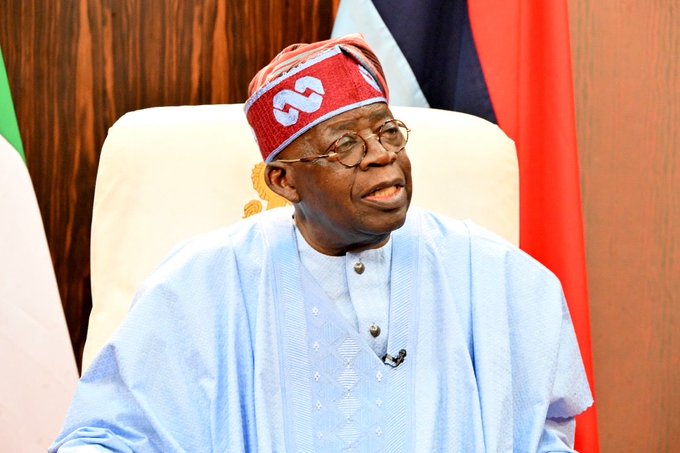The President, Bola Ahmed Tinubu, has reaffirmed the administration’s determination and commitment to eliminate terrorist and bandit groups tormenting Northern Nigeria, saying that no region of the country will be left to bleed while his government stands by.
According to him, the layers of complexity and sophistication of the inherited security crisis were daunting, but his resolve to end the menace remains firm and urgent.
Besides, President Tinubu also pledged to reverse the long-running economic decline of the North, expressing optimism that the region is on the verge of a major turnaround with the anticipated rollout of crude oil from the Kolmani fields and other emerging oil prospects across the region.
Speaking at the 25th Anniversary of the Arewa Consultative Forum (ACF) in Kaduna, the President, who was represented by the Speaker of the House of Representatives, Tajuddeen Abbas, said the North is facing one of the gravest tests in its history, a corrosion of security, a collapse of communal ethics and a distortion of the moral compass that once held its communities together.
He warned that Nigeria cannot prosper when a key part of its national body is “paralysed”, stressing that the North’s stability is essential to the peace and progress of the entire federation.
Tinubu praised the ACF for serving as the region’s conscience for 25 years, describing the forum as a reservoir of patriots, thinkers, moral leaders, and negotiators who have defended the dignity and interests of millions across the North.
He noted that the ACF’s founding fathers anticipated periods of national strain and built an institution strong enough to articulate the region’s hopes. According to him, the North’s triumph will depend on the strength of its institutions rather than on strong individuals.
The President said he attended the anniversary “not as a son of the region, but as a son of the Nigerian federation,” bound by duty and conscience to every part of the country. He urged leaders to embrace selflessness and moral responsibility, warning that privilege comes with accountability.
Tinubu said the North has not failed, but could fail if leaders retreat from their obligation to be their brothers’ keepers. He noted that failure begins the day leaders sleep comfortably while millions sleep hungry or travel in fear across short distances.
He insisted that hope is not lost, despite decades of dysfunction that weakened bonds and deepened distrust. The ethnic and religious diversity represented at the ACF anniversary, he said, signals the region’s readiness to overcome division and rebuild unity.
According to him, rebuilding trust across communities is fundamental because insecurity will persist, economic stagnation will deepen, and educational deficits will widen unless social harmony is restored.
The President listed key interventions under his administration, including accelerated road, rail and river transport projects across the North. Chief among them is the Abuja–Kaduna–Kano Superhighway, which he said would be completed and commissioned in Kano in the coming months.
Tinubu described the proposed ACF Endowment Fund as a bold and visionary step toward securing the region’s future. He said the fund’s focus on girl-child education, youth skills development, peacebuilding and conflict resolution aligns with the country’s broader development agenda.
He urged Northern leaders across government, traditional institutions and civil society to recommit themselves to the ideals that inspired the formation of the ACF 25 years ago: courage, justice, fairness and collective responsibility.
Tinubu warned that unity remains the North’s strongest asset. Without it, he said, security initiatives will sputter, economic opportunities will slip away, and the region’s political influence will diminish. But with unity, “there is no challenge the region cannot overcome.”
The President concluded by calling on the ACF to continue to act as the moral compass of the region, asserting that the North has the capacity to reclaim its stability, rebuild its economy, and remain a central pillar of Nigeria’s collective progress.

